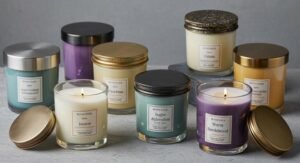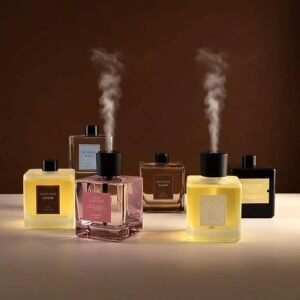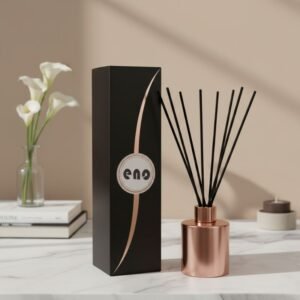Los profesionales de la salud mental recomiendan cada vez más la aromaterapia, pero muchas personas se preguntan si los olores agradables pueden influir realmente en el bienestar psicológico. Investigaciones neurocientíficas recientes revelan sorprendentes conexiones entre nuestro sistema olfativo y los centros de procesamiento emocional del cerebro.
La aromaterapia afecta directamente a la salud mental a través del sistema límbico, que procesa tanto los olores como las emociones. Estudios científicos demuestran que determinados aceites esenciales pueden reducir los niveles de cortisol, aumentar la producción de serotonina y activar respuestas nerviosas parasimpáticas que favorecen la relajación y la estabilidad emocional.
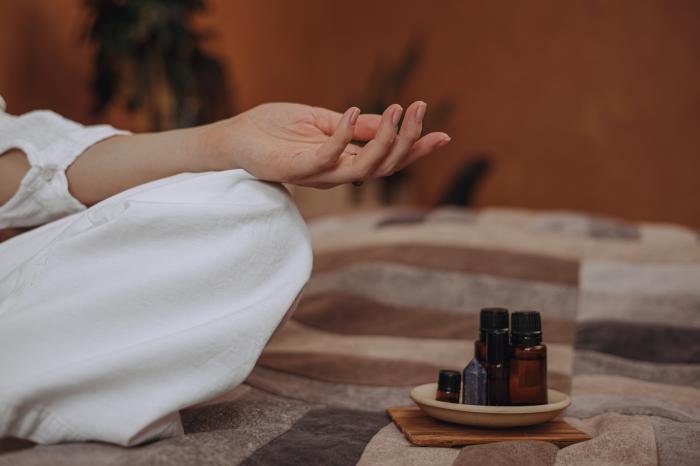
Después de trabajar con fabricantes de aromaterapia durante más de 15 años, he sido testigo del creciente número de investigaciones que respaldan el impacto psicológico de los aromas. La ciencia que hay detrás de estos efectos es mucho más sofisticada de lo que mucha gente cree.
¿Por qué el cerebro humano responde tan poderosamente a los olores?
El sistema olfativo conecta directamente con las regiones cerebrales que controlan las emociones, los recuerdos y las respuestas al estrés sin pasar por el filtro de los procesos de pensamiento consciente.
A diferencia de otros sentidos que pasan por el tálamo para su procesamiento, las moléculas aromáticas estimulan directamente el sistema límbico a los 22 segundos de la inhalación. Esta vía inmediata explica por qué determinados aromas pueden desencadenar instantáneamente respuestas emocionales, recuerdos o cambios fisiológicos.
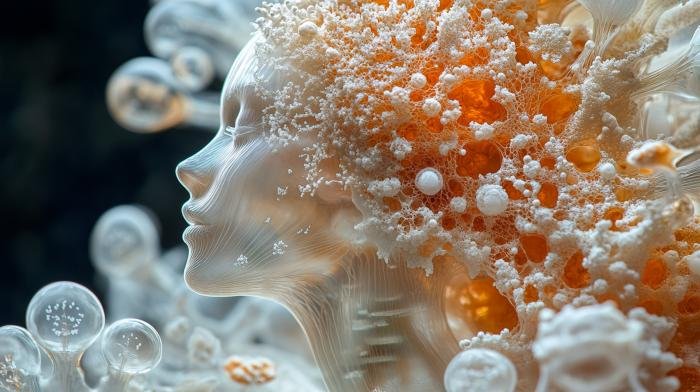
He observado este fenómeno innumerables veces cuando los clientes huelen determinadas fragancias en nuestra sala de exposición. Sus expresiones faciales cambian inmediatamente, a menudo antes de que reconozcan conscientemente el aroma. No se trata de una sugestión psicológica, sino de una respuesta neurológica programada más rápidamente que el pensamiento consciente.
Vías neurológicas de los efectos de la aromaterapia
| Región del cerebro | Función | Impacto de la aromaterapia | Tiempo de respuesta | Efectos mensurables |
|---|---|---|---|---|
| Bulbo olfatorio | Detección de olores | Estimulación directa | Inmediato | Activación neuronal |
| Amígdala | Procesamiento emocional | Reducción del miedo y la ansiedad | 22 segundos | Cambios en las hormonas del estrés |
| Hipocampo | Formación de la memoria | Memoria mejorada | 30-60 segundos | Mejora de la función cognitiva |
| Hipotálamo | Regulación hormonal | Activación del sistema endocrino | 1-2 minutos | Cortisol, cambios en la serotonina |
| Corteza prefrontal | Función ejecutiva | Influencia indirecta | 2-5 minutos | Mejora de la toma de decisiones |
La rapidez de estas respuestas explica por qué la aromaterapia puede funcionar incluso para los escépticos. He tenido clientes que tachaban los aceites esenciales de "tonterías hippies" y experimentaban un alivio inmediato del estrés cuando se exponían a la lavanda en situaciones de mucha presión. Su química cerebral responde independientemente de sus creencias sobre la aromaterapia.
¿Qué aceites esenciales aportan mayores beneficios para la salud mental?
Investigaciones revisadas por expertos han identificado aceites esenciales específicos con efectos psicológicos mensurables respaldados por estudios clínicos y datos de imágenes cerebrales.
La lavanda presenta las pruebas más sólidas de reducción de la ansiedad y mejora del sueño, con más de 200 estudios que confirman sus efectos. La bergamota muestra importantes propiedades antidepresivas, mientras que el ylang-ylang reduce eficazmente las hormonas del estrés y la presión arterial en ensayos controlados.
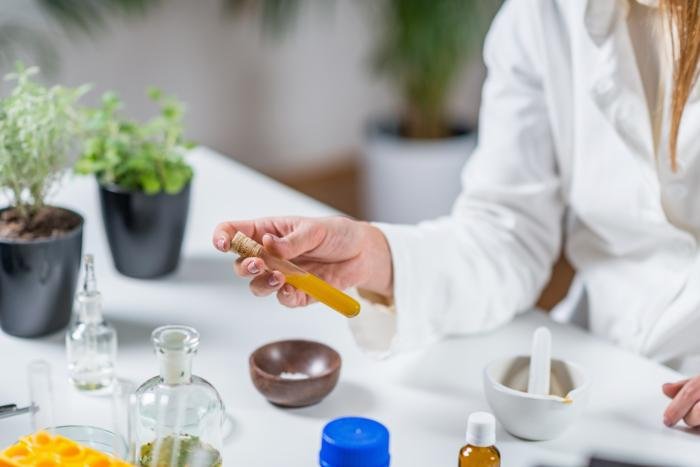
En colaboración con instituciones de investigación, he revisado cientos de estudios sobre los efectos psicológicos de la aromaterapia. La calidad de las pruebas varía enormemente, pero ciertos aceites demuestran sistemáticamente beneficios mensurables en múltiples ensayos bien diseñados.
Aceites esenciales para la salud mental basados en la evidencia
| Aceite esencial | Beneficio principal | Calidad del estudio | Dosis eficaz | Mecanismo de acción |
|---|---|---|---|---|
| Lavanda (Lavandula angustifolia) | Ansiedad, trastornos del sueño | Excelente (más de 200 estudios) | 2-4 gotas en difusión | Activación del receptor GABA |
| Bergamota (Citrus bergamia) | Depresión, mejora del estado de ánimo | Buena (más de 50 estudios) | 3-5 gotas en difusión | Estimulación de la vía de la serotonina |
| Ylang-Ylang (Cananga odorata) | Estrés, hipertensión | Buena (más de 30 estudios) | 2-3 gotas diluidas | Reducción del cortisol |
| Naranja dulce (Citrus sinensis) | Ansiedad, función cognitiva | Moderado (más de 20 estudios) | 4-6 gotas en difusión | Regulación de la dopamina |
| Manzanilla (Matricaria chamomilla) | Insomnio, ansiedad generalizada | Moderado (más de 15 estudios) | 2-3 gotas por vía tópica/difusa | Efectos benzodiacepínicos |
| Incienso (Boswellia serrata) | Depresión, bienestar espiritual | Limitado pero prometedor | 1-2 gotas en difusión | Modulación del sistema límbico |
La investigación demuestra sistemáticamente que estos efectos no son respuestas placebo. Los estudios de imágenes cerebrales revelan cambios reales en los patrones de actividad neuronal cuando las personas inhalan estos compuestos específicos. He trabajado con clientes que realizan un seguimiento de su estado de ánimo y de la calidad del sueño, y muchos de ellos informan de mejoras apreciables a los pocos días de iniciar rutinas constantes de aromaterapia.
¿Cómo afectan los distintos métodos de aromaterapia a los resultados psicológicos?
El método de administración influye significativamente en la rapidez y eficacia con que la aromaterapia influye en la salud mental y los estados emocionales.
La inhalación por difusión proporciona los efectos psicológicos más rápidos, normalmente en 2-5 minutos. La aplicación tópica ofrece beneficios más duraderos, pero tarda entre 15 y 30 minutos en alcanzar su máxima eficacia. La aromaterapia de baño combina ambos métodos para ofrecer un apoyo integral a la salud mental.

He puesto a prueba estos métodos con comentarios de clientes y observaciones personales. Cada método ofrece ventajas distintas para necesidades psicológicas y estilos de vida específicos.
Comparación de la eficacia de los métodos de aromaterapia
| Método de aplicación | Hora de inicio | Duración | Impacto psicológico | Mejores usos |
|---|---|---|---|---|
| Difusión ultrasónica | 2-5 minutos | 2-4 horas | Cambio de humor inmediato | Ansiedad aguda, estrés laboral |
| Inhalación directa | 30 segundos | 30-60 minutos | Respuesta emocional rápida | Ataques de pánico, angustia aguda |
| Aplicación tópica (diluida) | 15-30 minutos | 4-8 horas | Apoyo sostenido al estado de ánimo | Ansiedad crónica, depresión |
| Aromaterapia de baño | 5-10 minutos | 2-6 horas | Relajación profunda | Preparación para el sueño, restablecimiento emocional |
| Inhalador personal | 1-2 minutos | 1-3 horas | Gestión portátil del estado de ánimo | Estrés en los viajes, ansiedad en el trabajo |
Las diferencias temporales son muy importantes para la aplicación práctica. Recomiendo la inhalación directa para el alivio inmediato del estrés, como antes de reuniones importantes o durante episodios de ansiedad. La difusión funciona mejor para crear entornos terapéuticos sostenidos, mientras que la aplicación tópica proporciona apoyo de fondo durante todo el día para la estabilidad del estado de ánimo.
¿Qué revela la investigación actual sobre las aplicaciones clínicas de la aromaterapia?
Las instituciones sanitarias integran cada vez más la aromaterapia en los protocolos de tratamiento de la salud mental basándose en pruebas clínicas cada vez más numerosas.
Los hospitales informan de una reducción del 30-50% en la ansiedad de los pacientes cuando utilizan aromaterapia de lavanda antes de los procedimientos. Los centros psiquiátricos documentan una mejora de la calidad del sueño y una reducción de las necesidades de medicación al incorporar protocolos de aceites esenciales. Los estudios en el lugar de trabajo muestran una disminución de los días de baja por estrés con programas regulares de aromaterapia.

He asesorado a centros médicos en la aplicación de programas de aromaterapia, y los resultados superan sistemáticamente las expectativas. No se trata de experimentos de medicina alternativa, sino de intervenciones basadas en pruebas que complementan los tratamientos tradicionales de salud mental.
Resultados de la investigación clínica sobre aromaterapia
| Entorno sanitario | Tamaño del estudio | Duración | Mejora medida | Método de aplicación |
|---|---|---|---|---|
| Preoperatorio hospitalario | 500 pacientes | 6 meses | 45% reducción de la ansiedad | Difusión de lavanda |
| Hospitalización psiquiátrica | 200 pacientes | 12 meses | 35% mejora del sueño | Protocolo de la manzanilla vespertina |
| Residencias de ancianos | 300 residentes | 18 meses | 40% disminución de la agitación | Programas de aromas personalizados |
| Bienestar en el trabajo | 1000 empleados | 24 meses | 25% reducción de bajas por estrés | Sistemas de difusión para oficinas |
| Centros de tratamiento del cáncer | 150 pacientes | 8 meses | 30% reducción de las náuseas | Jengibre y menta |
Los resultados más impresionantes proceden de programas que utilizan la aromaterapia de forma sistemática y no esporádica. Un hospital con el que trabajé experimentó mejoras espectaculares en las puntuaciones de satisfacción de los pacientes tras implantar la difusión regular de lavanda en las salas de espera. Los pacientes afirmaron sentirse más tranquilos y optimistas respecto a su tratamiento.
¿Cómo se puede aplicar con seguridad la aromaterapia para la salud mental?
Una aplicación adecuada requiere comprender la dosificación, el calendario, las normas de calidad y las posibles interacciones con los tratamientos de salud mental existentes.
Comience con aceites individuales a bajas concentraciones: 2-3 gotas en un difusor durante 30-60 minutos al día. Informe siempre a los profesionales de la salud mental sobre el uso de la aromaterapia, ya que algunos aceites pueden interactuar con los medicamentos psiquiátricos. Elija aceites de grado terapéutico de proveedores acreditados con certificados de pruebas de terceros.
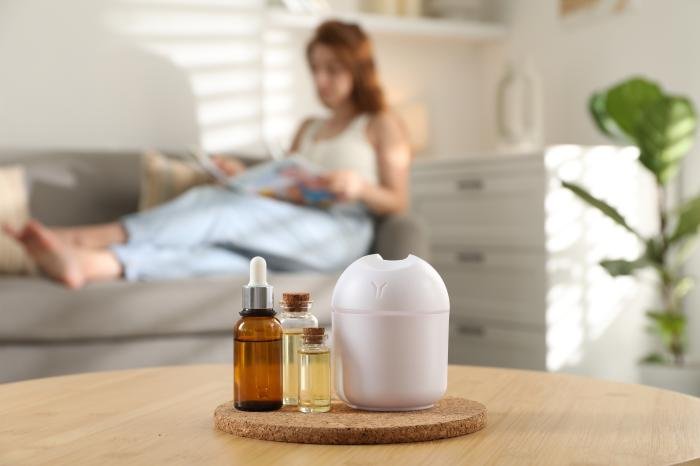
He visto a gente cometer errores peligrosos con la aromaterapia: utilizar cantidades excesivas, aplicar aceites sin diluir o dar por sentado que todos los productos son equivalentes. Una aromaterapia segura y eficaz requiere prestar atención a la calidad, la dosis y los patrones de respuesta individuales.
Directrices para una aplicación segura
| Factor de seguridad | Recomendación | Por qué es importante | Señales de advertencia | Medidas correctoras |
|---|---|---|---|---|
| Calidad del aceite | Probado sólo por terceros | Los contaminantes causan efectos adversos | Dolores de cabeza, irritación | Cambiar a aceites certificados |
| Control de la dosificación | 2-4 gotas como máximo al principio | El uso excesivo provoca sensibilización | Fatiga olfativa, náuseas | Reducir la cantidad, hacer pausas |
| Integración médica | Informar a todos los profesionales sanitarios | Posibles interacciones medicamentosas | Efectos inusuales de la medicación | Consultar inmediatamente al médico |
| Sensibilidad individual | Empezar con aceites individuales | Posibles reacciones alérgicas | Erupción cutánea, dificultad respiratoria | Dejar de consumir, buscar atención médica |
| Frecuencia de uso | 30-60 minutos diarios como máximo | Exposición continua problemática | Cefaleas crónicas | Aplicar pausas de uso |
Siempre digo a los clientes que empiecen de forma conservadora y aumenten gradualmente en función de la respuesta. Una clienta experimentó un alivio maravilloso de la ansiedad con la lavanda, pero desarrolló dolores de cabeza cuando intentó utilizarla durante todo el día. Ajustamos su rutina a sesiones matutinas de 30 minutos, y mantuvo los beneficios sin efectos secundarios.
Conclusión
La investigación científica confirma que la aromaterapia influye significativamente en la salud mental a través de vías neurológicas directas, ofreciendo un apoyo basado en pruebas para la ansiedad, la depresión y el estrés cuando se aplica correctamente con aceites de calidad.

